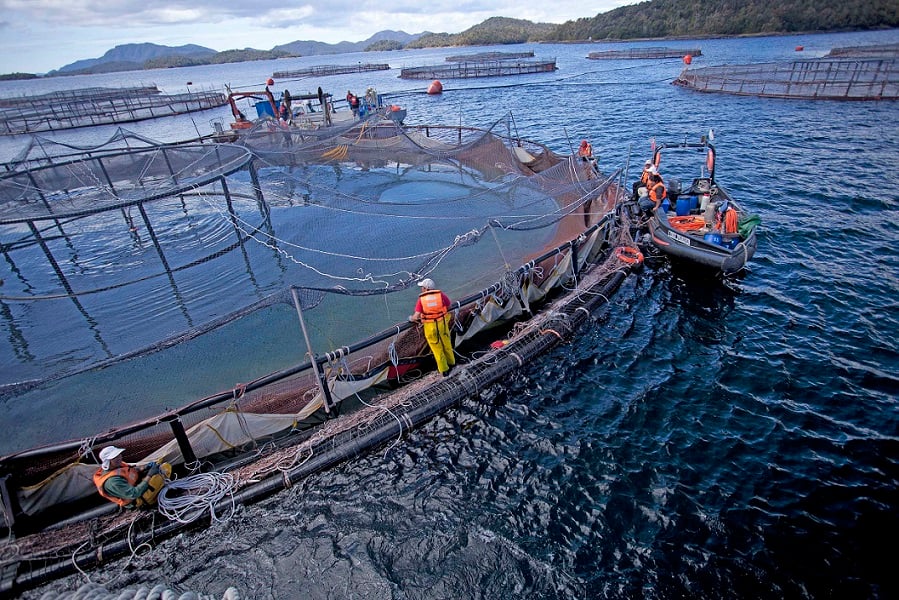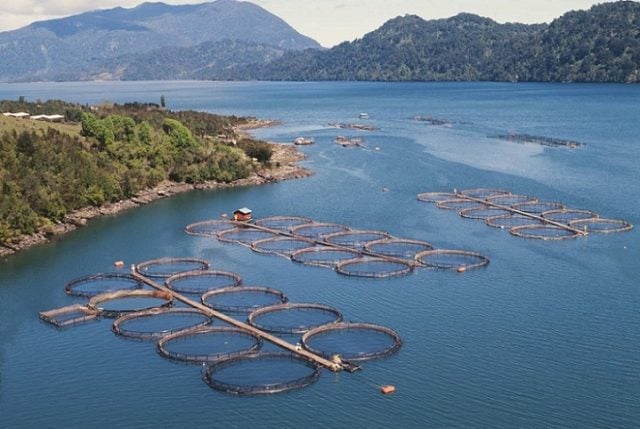Original article: “Vergüenza internacional”: Confirman que Chile es el único país de América Latina con cultivos de salmón en áreas protegidas
While Latin America and the Caribbean Celebrate Protected Areas Day, Chile Hosts 408 Salmon Farming Centers Operating Impunely within these Reserves

In the context of Protected Areas Day celebrations in Latin America and the Caribbean, environmental organizations raised alarms regarding a serious contradiction in Chile’s environmental policy. The campaign Defendamos Patagonia issued a statement on social media, declaring that in the country, «there is nothing to celebrate, « due to the state’s permissiveness that allows the salmon farming industry to operate within reserves and national parks.
According to their publication, this day should serve as a crucial reminder of the need to preserve unique ecosystems that host irreplaceable biodiversity and combat climate change. However, the organization questions the rhetoric of the Chilean state, which aspires to be a global leader in ocean conservation, especially through its participation in international treaties like the BBNJ (Agreement on Biodiversity Beyond National Jurisdiction). «Chile has an undeniable obligation: to remove salmon farms from protected areas,» they demand.
This criticism is backed by concrete data provided by the campaign Protected Areas Without Salmon Farms, revealing an alarming reality: Chile is the only country in Latin America and the Caribbean that allows industrial salmon farming in protected areas. The industry, which ranks second in national exports, actively operates in reserves like Kawésqar, where at least 67 farms exist, and across five protected areas in Patagonia, one of which houses over 300 concessions.
Defendamos Patagonia warns about the direct impact of these operations. «These industrial facilities contaminate pristine waters, affect native species, and jeopardize national parks and reserves in Patagonia, which are a source of pride for all people, « claims the group. They further emphasize that «scientific evidence is clear: salmon farms generate massive escapes of invasive fish, excessive use of antibiotics, and eutrophication, threatening the sustainability» of these fragile ecosystems.
The campaign Protected Areas Without Salmon Farms delves deeper into the consequences, reporting that these farms cause chemical pollution, disturbances in the seabed, and critically, the disruption of indigenous ecosystems, limiting traditional access for local communities. Unlike other countries in the region, where aquaculture is excluded from protected zones, Chile maintains 408 farms within these natural sanctuaries, «prioritizing profits over life, the planet, and conservation.»
In light of this situation, Defendamos Patagonia made a broad appeal to the political class. «We call on ALL POLITICAL PARTIES AND SECTORS, those who will win the upcoming elections, to be aware and responsible,» urging them to prioritize «real conservation: remove salmon farms from protected areas, strengthen oversight, and promote sustainable development alternatives.»
Both civic initiatives emphasize that Chile’s international credibility is at stake. «Chile cannot preach leadership while sacrificing its own marine sanctuaries,» assert members of Defendamos Patagonia. They conclude that the country can only be a global example through concrete actions, not with «empty rhetoric,» demanding President Gabriel Boric’s government to suspend new concessions and eliminate existing ones to align with global conservation commitments.

